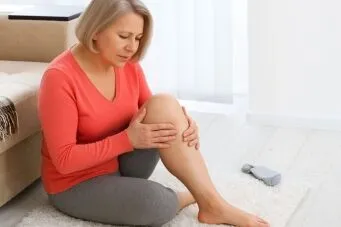Osteoporosis is often called a silent condition because it usually doesn’t show any symptoms until a fracture occurs. As women grow older, especially after the age of 50, their bone density naturally begins to decline. This can make bones weak and more prone to breaking. A combination of factors such as reduced physical activity, spending less time outdoors, and changes in diet can make this condition worse.
However, the good news is that with the right lifestyle choices, women can protect their bones and reduce the risk of osteoporosis. Let’s explore simple yet effective ways to maintain bone health.
Ensure Adequate Calcium and Vitamin D
Calcium is the foundation of strong bones. Women between the ages of 19 and 50 are advised to consume around 1,000 mg of calcium daily. After the age of 50, this should be increased to 1,200 mg per day. Foods rich in calcium include:
- Milk, paneer, and other dairy products
- Almonds and leafy green vegetables like spinach
- Fish such as salmon and rohu
- Fortified cereals and juices
Vitamin D helps the body absorb calcium better. For adults under 70, about 15 micrograms (mcg) of Vitamin D per day is recommended, and for those over 70, it’s 20 mcg. The body can make Vitamin D naturally when exposed to sunlight, so spending a short time outside daily can be helpful. Food sources include:
- Fatty fish like prawns and salmon
- Egg yolks and cheese
- Fortified milk and cereal
If you’re unable to meet these requirements through food and sunlight alone, supplements may be considered under medical guidance.
Regular Physical Activity
Exercise plays a major role in maintaining bone strength and preventing falls. Weight-bearing and muscle-strengthening activities can help improve bone density and balance.
Recommended Activities:
- Brisk walking, jogging, dancing, or playing sports like tennis
- High-impact moves like jumping or skipping rope
- Strength training with light weights or resistance bands
Swimming and cycling are excellent for heart health but are not weight-bearing and therefore don’t help build bone mass. Before starting a new fitness routine, especially for those over 75 or with health conditions, it is best to consult a medical or fitness expert.
Lifestyle Adjustments for Better Bone Health
Long-term bone health also depends on everyday choices. These small changes can make a big difference:
- Quit smoking and reduce alcohol intake
- Limit caffeine as it can affect calcium absorption
- Avoid walking in socks on smooth floors to reduce fall risk
- Use slippers with rubber soles and install nightlights in your home
- Use walking aids like canes if recommended to prevent falls
Simple habits like these help protect against sudden falls, which are a common cause of fractures in older adults.
Conclusion
Age increases the risk of bone-related issues, but it is never too late to take action. A combination of healthy food, regular activity, and fall prevention strategies can go a long way in protecting your bones. While osteoporosis cannot be completely cured, its effects can be managed, and future fractures can be avoided.
Always consult with your doctor or a healthcare professional before making significant dietary changes for Athletic Performance. They can provide personalized guidance based on your medical history and current health status.
Note – If you have any health-related concerns, please call us at +91-9058577992 to receive free consultation from our experienced doctors. Thank you.
